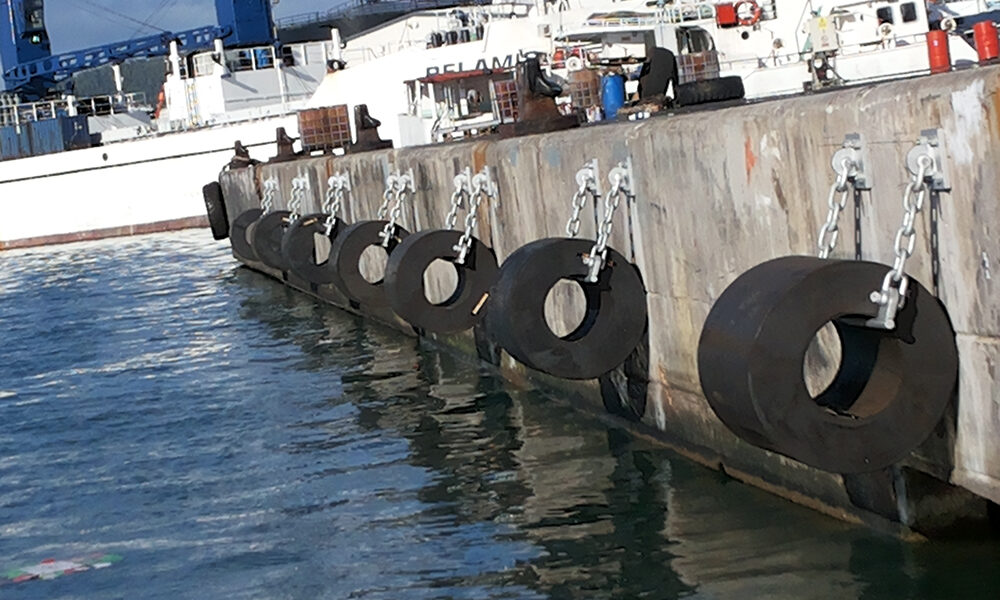The seas and oceans of the world are a vital part of our lives, yet their unsung heroes often go unrecognized. One such hero is the ship fender, which plays an essential role in keeping ships safe from damage due to rough weather or collisions.
This article will explore the history and purpose of shipfenders, highlighting why they are so important for maritime safety. Well also take a look at how modern technology has changed the design and use of these devices over time.
By uncovering the story behind these invisible protectors, we can better appreciate their significance in ensuring a safe journey for all those who traverse our waters.
How Ship Fenders Protect Vessels from Damage
As a vessel navigates the open waters, it is at risk of being damaged by debris or other vessels in its path. Ship fenders are an often overlooked safety measure that protects boats and ships from harm.
They come in different sizes and shapes to suit any type of vessel, from small recreational craft to large commercial ships. Fenders can be made from materials such as foam-filled plastic or rubberized fabric, both providing cushioning between the boat and potential impacts.
Deployment of ship fenders around a vessel’s hull helps reduce damage when it encounters objects while underway; they absorb most of the force upon impact. In addition to reducing physical damage, this also helps minimize noise levels aboard ship which improves crew comfort and reduces stress on equipment due to vibrations caused by collisions with other objects in the water. Fenders also protect against abrasion if two vessels rub together during mooring operations or adverse weather conditions.
Ship fenders are essential components for any seafaring voyage and should always be included when outfitting a new boat or replacing worn-out ones on existing vessels—they could make all the difference between safe passage through treacherous oceans and costly repairs after an accident!
The Role of Ship Fenders in Maritime History

The impact of shipfenders on maritime history is often overlooked, but their importance cannot be overstated. From the earliest days of sailing vessels to modern-day ships, these devices have protected boats and their passengers from a variety of hazards.
Ship fenders were commonly used as a type of buffer between two vessels when docking or maneuvering in tight harbor spaces. They acted as a cushion to absorb shock and protect hulls from damage caused by contact with other vessels or sharp objects like reefs and rocks.
Ship fenders also played an important role during military conflicts at sea, providing vital protection against cannon fire and stray shots that could otherwise cause serious damage to naval fleets. Sailors relied on them for safety while navigating dangerous waters such as pirate-infested areas or hostile shorelines. By using ship fenders instead of anchoring directly onto the seafloor, they could easily retreat if attacked without suffering any losses due to dragging anchor chains or getting caught up in submerged debris.
In addition to these defensive applications, ship fenders were also employed offensively during naval battles by allowing attackers to get close enough for boarding parties before being repelled again quickly if necessary – adding yet another layer of strategic depth to maritime warfare tactics throughout history! Their unique design allowed sailors greater flexibility in how they approached combat scenarios at sea, giving them an edge over those relying solely on traditional methods. Ship fenders are truly unsung heroes of the seas; despite being sometimes overlooked, their contributions have been invaluable throughout centuries past and continue today!
Conclusion
The unsung heroes of the sea, ship fenders, have been unveiled to the public. Ship fenders are designed to protect ships from impacts with berthing structures or other vessels in a wide range of conditions and allow for safe docking of vessels.
The traditional wooden fender is still widely used but many modern dockyards now use floating pneumatic rubber fender systems which provide superior protection and require less maintenance over time. They also offer improved flexibility as they can be adjusted to suit different types of vessel sizes and operating conditions, making them an invaluable asset to any marine facility looking to ensure safe navigation even during challenging weather situations.
Ship owners around the world can rest assured knowing that their ships are well protected by this reliable technology that continues to remain one of the great unsung heroes at sea – floating pneumatic rubber fender systems.





